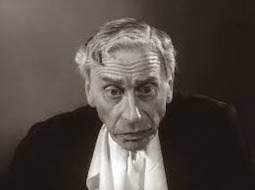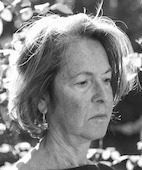#håkan jahnberg
Explore tagged Tumblr posts
Text
A poem by Louise Glück

The Denial of Death
1. A TRAVEL DIARY
I had left my passport at an inn we stayed at for a night or so whose name I couldn’t remember. This is how it began. The next hotel would not receive me, a beautiful hotel, in an orange grove, with a view of the sea. How casually you accepted the room that would have been ours, and, later, how merrily you stood on the balcony, pelting me with foil-wrapped chocolates. The next day you resumed the journey we would have taken together.
The concierge procured an old blanket for me. By day, I sat outside the kitchen. By night, I spread my blanket among the orange trees. Every day was the same, except for the weather.
After a time, the staff took pity on me. A busboy would bring me food from the evening meal, the odd potato or bit of lamb. Sometimes a postcard arrived. On the front, glossy landmarks and works of art. Once, a mountain covered in snow. After a month or so there was a postscript: X sends regards.
I say a month, but really I had no idea of time. The busboy disappeared. There was a new busboy, then one more, I believe. From time to time, one would join me on my blanket.
I loved those days! each one exactly like its predecessor. There were the stone steps we climbed together and the little town where we breakfasted. Very far away, I could see the cove where we used to swim, but not hear anymore the children calling out to one another, nor hear you anymore, asking me if I would like a cold drink, which I always would.
When the postcards stopped, I read the old ones again. I saw myself standing under the balcony in that rain of foil-covered kisses, unable to believe you would abandon me, begging you, of course, though not in words—
The concierge, I realized, had been standing beside me. Do not be sad, he said. You have begun your own journey, not into the world, like your friend, but into yourself and your memories. As they fall away, perhaps you will attain that enviable emptiness into which all things flow, like the empty cup in the Daodejing—
Everything is change, he said, and everything is connected. Also everything returns, but what returns is not what went away.
We watched you walk away. Down the stone steps and into the little town. I felt something true had been spoken, and though I would have preferred to have spoken it myself, I was glad at least to have heard it.
2. THE STORY OF THE PASSPORT
It came back but you did not come back. It happened as follows:
One day an envelope arrived, bearing stamps from a small European republic. This the concierge handed me with an air of great ceremony; I tried to open it in the same spirit.
Inside was my passport. There was my face, or what had been my face at some point, deep in the past. But I had parted ways with it, that face smiling with such conviction, filled with all the memories of our travels together and our dreams of other journeys—
I threw it into the sea.
It sank immediately. Downward, downward, while I continued staring into the empty water.
All this time the concierge was watching me. Come, he said, taking my arm. And we began to walk around the lake, as was my daily habit.
I see, he said, that you no longer wish to resume your former life, to move, that is, in a straight line as time suggests we do, but rather (here he gestured toward the lake) in a circle, which aspires to that stillness at the heart of things, though I prefer to think it also resembles a clock.
Here he took out of his pocket the large watch that was always with him. I challenge you, he said, to tell, looking at this, if it is Monday or Tuesday. But if you look at the hand that holds it, you will realize I am not a young man anymore, my hair is silver. Nor will you be surprised to learn it was once dark, as yours must have been dark, and curly, I would say.
Through this recital, we were both watching a group of children playing in the shallows, each body circled by a rubber tube. Red and blue, green and yellow, a rainbow of children splashing in the clear lake.
I could hear the clock ticking, presumably alluding to the passage of time while in fact annulling it.
You must ask yourself, he said, if you deceive yourself. By which I mean looking at the watch and not the hand holding it. We stood awhile, staring at the lake, each of us thinking our own thoughts.
But isn’t the life of the philosopher exactly as you describe, I said. Going over the same course, waiting for truth to disclose itself.
But you have stopped making things, he said, which is what the philosopher does. Remember when you kept what you called your travel journal? You used to read it to me, I remember it was filled with stories of every kind, mostly love stories and stories about loss, punctuated with fantastic details such as wouldn’t occur to most of us,
and yet hearing them I had a sense I was listening to my own experience but more beautifully related than I could ever have done. I felt
you were talking to me or about me though I never left your side. What was it called? A travel diary, I think you said, though I often called it The Denial of Death, after Ernest Becker. And you had an odd name for me, I remember.
Concierge, I said. Concierge is what I called you. And before that, you, which is, I believe, a convention in fiction.

Louise Glück (1943-2023)
Image: Håkan Jahnberg who played the hotel concierge in Ingmar Bergman's film The Silence (1963).
#louise gluck#american poetry#the denial of death#ingmar bergman#the silence#concierge#håkan jahnberg
4 notes
·
View notes
Text
4.15.19

#film#letterboxd#watched#the silence#ingmar bergman#ingrid thulin#gunnel lindblom#birger malmsten#håkan jahnberg#jòrgen lindström
1 note
·
View note
Photo



Tystnaden (The Silence) | Ingmar Bergman | 1963
Jörgen Lindström, Håkan Jahnberg
#Jörgen Lindström#Håkan Jahnberg#Ingmar Bergman#Bergman#Tystnaden#The Silence#1961#BF2018#The Silence 1963
39 notes
·
View notes
Photo

Tystnaden/The Silence (1963 Sweden 96 mins)
Prod Co: Svensk Filmindustri (SF) Prod: Allan Ekelund Dir, Scr: Ingmar Bergman Phot: Sven Nykvist Ed: Ulla Ryghe Art Dir: P. A. Lundgren Mus: Ivan Renliden
Cast: Ingrid Thulin, Gunnel Lindblom, Jörgen Lindström, Håkan Jahnberg, Birger Malmsten
Le Silence est l'un des films les plus importants et les plus parfaits d'Ingmar Bergman, marquant un point culminant dans son expérimentation formelle distinctive, défiant le discours thématique et fomentant un affect spectateur radicalement intime. Malgré des défis esthétiques et conceptuels considérablement accrus, le film a été un succès substantiel au box-office à l'époque (le dernier de Bergman jusqu'à Viskningar och rop / Cries and Whispers en 1972) en grande partie en raison de la controverse majeure qui a éclaté sur sa sexualité assez explicite.(1) . Défiant à la fois le public et les lois de censure dans le monde entier, The Silence a également offert des signes importants pour l'avenir, à la fois dans le propre travail de Bergman - notamment en regardant le modernisme accru et la dissolution du sujet de Persona (1966) - et celui d'autres (comme David Lynch et Peter Greenaway). À la fois marqué par et contribuant à son moment cinématographique historique, le film peut également être considéré comme exemplaire du cinéma d'art européen du début des années 60 : dans sa mise en scène évocatrice dominé par l'héritage européen en ruine d'un hôtel baroque fané ; expression sexuelle « libérale » mais complexe et conflictuelle ; forme esthétique raisonnablement abstraite qui oblige le spectateur à interpréter des images souvent très ambiguës ; et le traitement thématique de la culture et des sujets de la modernité occidentale contemporaine comme conceptuellement et existentiellement en crise.
(via OK)
https://www.sensesofcinema.com/2009/cteq/silence/
6 notes
·
View notes
Photo









July 2016 / The month in teapots / Bergman Fest Special Edition:
Kris (Crisis) | Ingmar Bergman | 1946
Larmar och gör sig till (In the Presence of a Clown) | Ingmar Bergman | 1997
Kvinnors Väntan (Waiting Women) | Ingmar Bergman | 1952
Viskningar och Rop (Cries And Whispers) | Ingmar Bergman | 1972
Tystnaden (The Silence) | Ingmar Bergman | 1963
Skepp till India land (A Ship Bound for India) | Ingmar Bergman | 1947
Ansikte mot ansikte (Face to Face) | Ingmar Bergman | 1976
En Passion (A Passion) | Ingmar Bergman | 1969
Skammen (Shame) | Ingmar Bergman | 1968
80 notes
·
View notes
Photo

Tystnaden (The Silence) - Ingmar Bergman - 1963
Ingrid Thulin, Håkan Jahnberg
#Håkan Jahnberg#Ingrid Thulin#Tystnaden#The Silence#Ingmar Bergman#Bergman#1963#BF2014#The Silence 1963
8 notes
·
View notes
Photo

Tystnaden (The Silence) - Ingmar Bergman - 1963
Håkan Jahnberg and Jörgen Lindström
8 notes
·
View notes